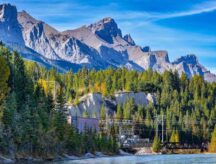Quebec releases guide to prepare immigrants for new ‘values test’
Pour lire cet article en français, cliquez ici.
The Government of Quebec has provided new details of the so-called values test that immigration candidates will have to pass in order to qualify for selection by the province.
Beginning January 1, 2020, immigration candidates looking to settle in Quebec will have to obtain what the government is calling an Attestation of learning about democratic values and the Quebec values expressed by the Charter of Human Rights and Freedoms.
In a new, French-only Practical Guide to the test, the Government of Quebec says knowledge of the values it reflects is essential to an immigrant’s integration into the province.
“They are key to a better understanding of Quebec,” the guide says.
Reading the guide is not required in order to take the test but serves instead as an introduction to the values in question, which it divides into five key principles:
- Quebec is a French-speaking society
- Quebec is a democratic society
- Equality between women and men
- The rights and responsibilities of Quebecers
- Quebec is a secular society
About the values test
Quebec’s values test applies to the following five economic immigration programs:
- Quebec Skilled Worker Program (QSWP);
- Quebec Experience Program (PEQ);
- Entrepreneur Program;
- Self-Employed Program; and the
- Investor Program.
All those listed on a candidate’s application for a Quebec Selection Certificate must pass the test, except for children under the age of 18 and people with a permanent physical or cognitive impairment that prevents them from obtaining the certificate.
Immigration candidates have 60 days following their application for a selection certificate to send in their attestation, which proves they passed the test.
Passing grades must be above 75 per cent, or 15 out of 20, and the attestation is valid for two years.
Failure to successfully complete the values test will result in the termination of the application, and the candidate will have to start the process over again if they still wish to settle in Quebec.
Taking the test
Candidates will have the option of either taking the test online or, if they are in Quebec, taking part in an information session.
In either case, candidates have three chances to successfully pass the test.
Study and work permit holders who fail the test a second time must do the in-person information session for their final attempt.
Those who are applying from abroad have the option to complete the test online for a third and final time.
The online test includes 20 questions randomly generated from a question bank. Some sample questions include:
Identify the situation(s) where there is discrimination. Refusing a job:
• To a woman because of her pregnancy.
• To a person who does not have the required diploma.
• To a person because of their ethnic origin.
Since March 27, 2019, under the State Secularity Act, any new police officer cannot wear religious symbols in the exercise of their functions.
• True
• False
What is the official language of Quebec?
• English
• Spanish
• French
• French and English
Five key principles
The Government of Quebec summarizes the five key principles underlying the test as follows:
Quebec is a French-speaking society
Quebec stands alone as the only majority French-speaking jurisdiction in North America and, as such, wants to ensure the quality, protection, and influence of the French language and preserve it as the common language in the province.
As a result, French is the language of the government and the law, as well as the usual language of work, teaching, communication, trade and business.
The Quebec Government must offer all services and communications in French without exception.
Immigrants to Quebec are strongly encouraged to learn French in order to integrate into their new communities.
Quebec is a democratic society
Members of Quebec’s legislative assembly are voted in by election.
The results of an election cannot be challenged by force or violence, however, a recount may be requested.
Anyone who is not a Canadian citizen may get involved in a political party even if they cannot vote. They may also participate in an event organized by a political party.
Political financing and the control of election expenses are subject to principles of fairness and transparency.
Citizens have the right to vote freely and confidentially. No one can prevent or compel a citizen to exercise his or her right to vote for a particular candidate, and no one can force a
a citizen to reveal their choice of candidate.
This section also covers freedom of the press, freedom of expression, and freedom of association, among others.
Equality between women and men
Women and men have the same rights and freedoms, as well as the same obligations and responsibilities in private and public life.
In regards to marriage and civil union, women and men have the right to marry the person of their choice regardless of gender. However, being married to multiple people at once is prohibited.
In the labour market, women and men are entitled to the same wages and the same working conditions.
The rights and responsibilities of Quebecers
The Charter of Human Rights and Freedoms applies to everyone who is
in Quebec. It also applies to groups, organizations, businesses and government.
Fundamental rights include the right to life, security, integrity and personal liberty and the right to privacy.
Fundamental rights also protect freedom of conscience, religion, opinion, expression, peaceful assembly and association.
Since fundamental rights are exercised in society, there are certain limits to their
application.
For example, smoking is prohibited inside public spaces and outside within nine meters from their doors. The Quebec government says this is because the health and well-being of people are more important than the right of everyone to smoke.
There are many more rights and responsibilities listed in the guide including the right to non-discrimination, the rights of children, and judicial rights.
Quebec is a secular society
Quebec and its institutions are secular, meaning their actions and decisions are independent of religious powers.
This past spring, Quebec passed a controversial law that prohibits the wearing of religious symbols by people in certain positions of public authority such as police officers, prosecutors, and teachers. The law does not affect people who were already working in those positions prior to March 27, 2019.
In addition, a person must reveal their face in order to receive government services. This also affects the staff who are offering the service on behalf of the government. Quebec says this is “for the purpose of identity or security verification.”
Quebec is the only North American jurisdiction that has included secularism in its laws.
Find out if you are eligible for any Canadian immigration programs
© 2019 CIC News All Rights Reserved
- Do you need Canadian immigration assistance? Contact the Contact Cohen Immigration Law firm by completing our form
- Send us your feedback or your non-legal assistance questions by emailing us at media@canadavisa.com





